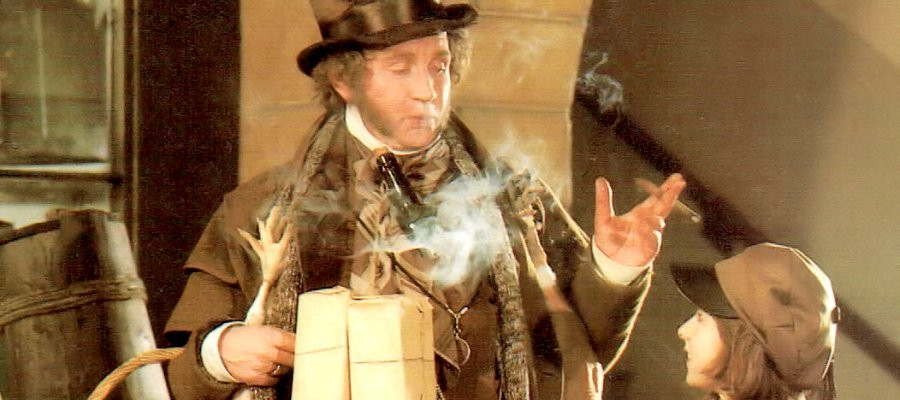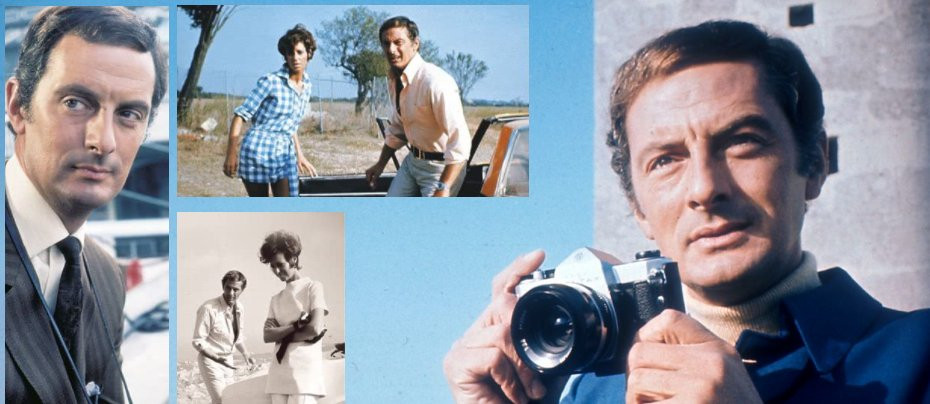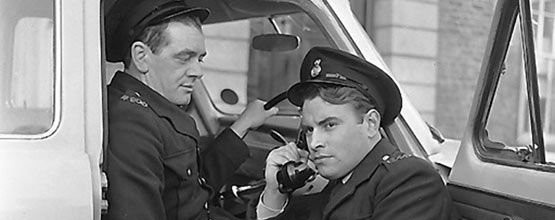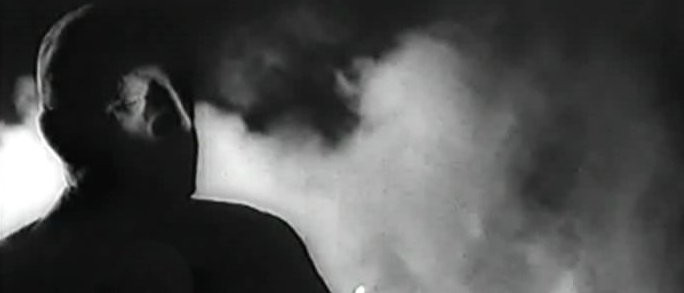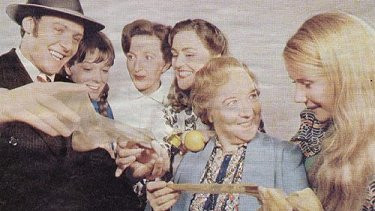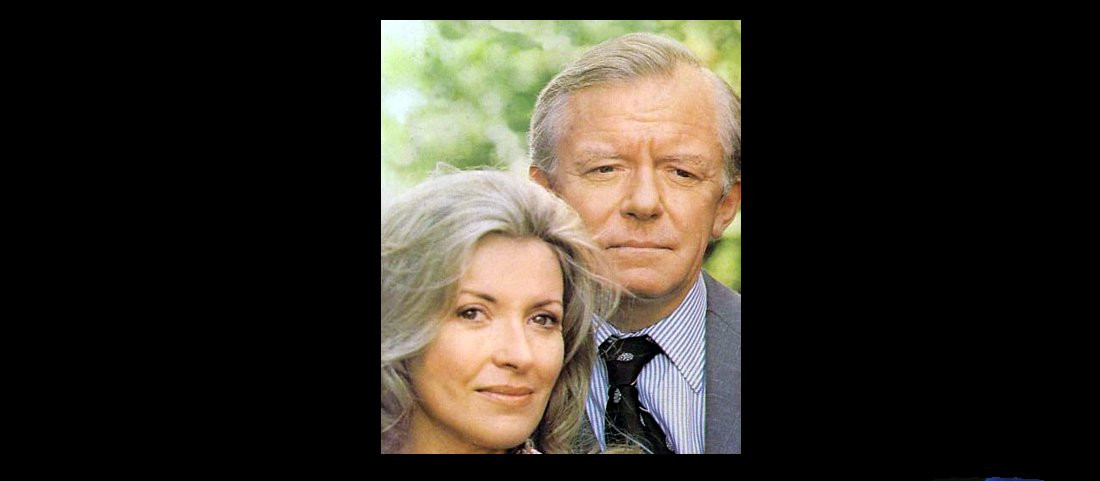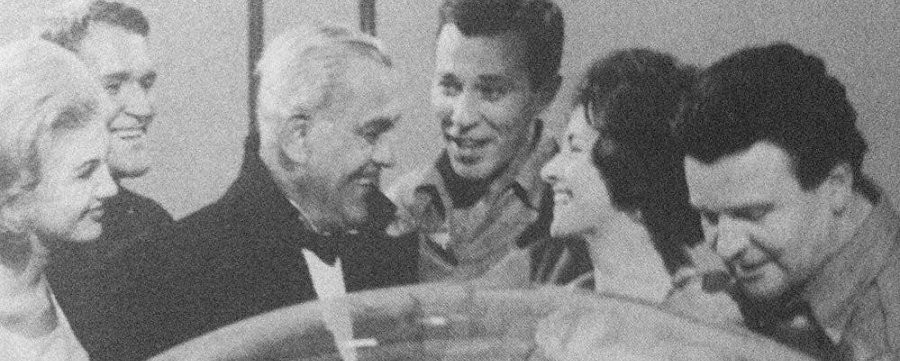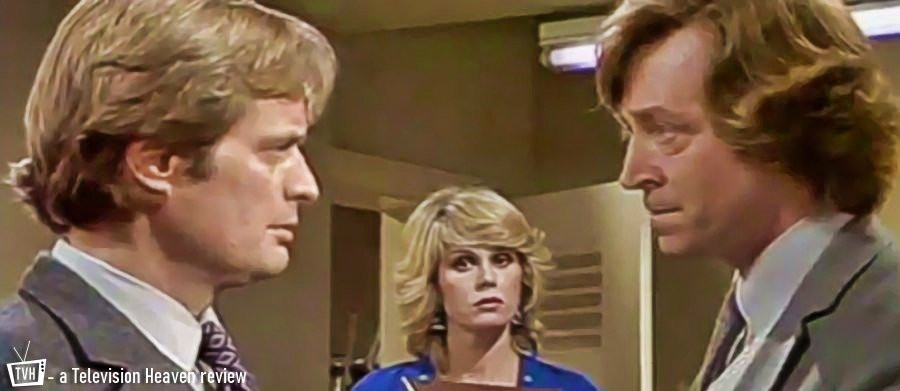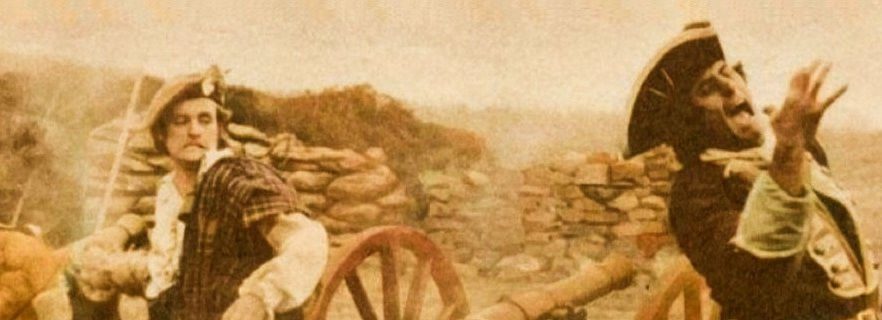
Kidnapped
1979 - Uk Germany‘The great success of the production is the casting of its leading role’
Kidnapped Review: John Winterson Richards
Like one of his most famous characters, there are two sides to the great Scottish novelist Robert Louis Stevenson. He wrote stories of deep psychological sophistication like Strange Case of Dr Jekyll and Mr Hyde and The Ebb-Tide. At the same time, to finance a comfortable middle-class lifestyle and then his travels in the South Seas, he produced popular historical romances like Treasure Island, Kidnapped, and The Master of Ballantrae in the tradition of his compatriot Sir Walter Scott, a friend of his grandfather's. Yet Stevenson cannot help giving even these apparently simple adventure stories some real psychological subtext.
One of his most commercially successful novels and the only one to which he wrote a sequel, Kidnapped is on its surface a bildungsroman, a coming-of-age story, in which naive teenager David Balfour, the rightful heir to a considerable estate, is kidnapped on the orders of his wicked uncle. He escapes and returns to claim his estate with the help of Jacobite adventurer Alan Breck Stewart, a man of action and a man of the world who also becomes the male role model David needs to grow up properly.
Yet as the story develops, it becomes clear that Alan Breck is not quite as impressive as he first appears to the awestruck David when he is at his most heroic. He has his flaws, and he is as out of his depth in the modern world being built around him as David is out of his depth in the fringes of civilisation where Alan is in his element. The difference is that, while David is able to mature and learns to navigate both environments successfully, it is too late for Alan. In the sequel novel, Catriona, it is David who, to an extent, ends up trying to protect Alan.
It is, therefore, no great surprise that Kidnapped has been adapted many times for film and television, usually stressing the adventure and coming-of-age elements, but Catriona is relatively neglected, even if elements were used in a memorable 1971 feature film adaptation starring Michael Caine as Alan Breck. Caine may not be obvious casting as a Highlander, but he entertains by making Alan a classic swashbuckler in fine Errol Flynn style.
The 1978 television adaptation by HTV (Harlech Television), which held the ITV franchise for Wales and the West Country, in association with the German company Tele-Munchen, was therefore a brave venture so soon after the 1971 film. It might be a strange choice for a Welsh-based company to invest in telling one of the great Scottish stories. Yet HTV always sought to punch above its weight in family-friendly historical drama and produced several of the most affectionately remembered examples of the genre, including Arthur of the Britons, Robin of Sherwood, Stevenson's Kidnapped and The Master of Ballantrae, and Return to Treasure Island, the last an unofficial "sequel" to Stevenson's other great bestseller. Sadly, Wales has yet to find her Stevenson or her Scott, so HTV had to poach Scotland's literary heritage.
The HTV Kidnapped seems to have distanced itself deliberately from the Caine film, in particular by introducing more of the story from Catriona and by giving us a more nuanced Alan, closer to the character in the books. The great success of the production is the casting of its leading role.
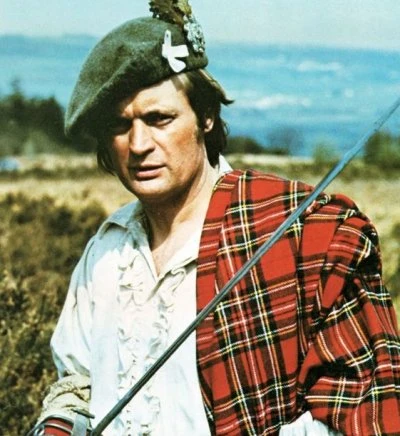
By any standards, David McCallum has enjoyed an extraordinary career. He probably holds the record for the longest stay at the very top level in television acting: while much older actors may have turned up for occasional cameos and guest slots, McCallum is still the senior member, and the best-known name, in the regular cast of a popular American network show, NCIS, at 89 at the time of writing - almost sixty years since his truly spectacular breakthrough in a network show as Illya Kuryakin in The Man from U.N.C.L.E. Yet in many ways, his most interesting period as an actor was between these two high-profile roles. He was unforgettable in Colditz and Sapphire & Steel, and, from personal experience, very effective on the stage, which is unusual among high-level television actors, in The Lion in Winter.

In Kidnapped he reveals the various layers of Alan Breck Stewart one by one. We meet him first as a daring secret agent, a sort of Jacobite Man from U.N.C.L.E., which is what we expect. Then we see his ruthless streak as he blackmails former Jacobites into paying double rent to fund what almost everyone else realises is a lost cause. At the same time we get hints of his immaturity as he leads an impetuous charge at Culloden in "flashback" and later takes unfeigned joy in the fight with David's kidnappers. His weakness for cards and alcohol, neither of which he handles well, are revealed later, further undermining his status as the epitome of all a real man should be. McCallum never loses his veneer of heroism but hints increasingly that there is little of substance beneath. It is an accomplished performance by an actor in his prime, and a brave one, subtly satirising his own post-Kuryakin image as the action hero with hidden depth.
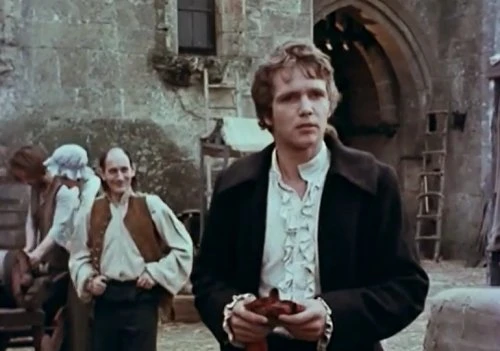
David Balfour is in some ways the harder role. Priggish and whiggish, he is less sympathetic than the wrong but romantic Alan. One can only assume the German actor Ekkehardt Belle was cast as part of the co-production deal: in his twenties at the time, he is too old and too big for a seventeen-year-old who is physically intimidated as frequently as poor Davie.
Far more successful is the casting of the lovely French actress Aude Landry as Catriona. Well dubbed, she is surprisingly credible as a wild Highland girl, not to mention a seventeen-year-old Scots lad's romantic dream in 1751 (as well as a fourteen-year-old Welsh lad's in 1979, again from personal experience). It is sad to note that her acting career does not seem to have lasted much longer: whatever the reason, it was not lack of presence.
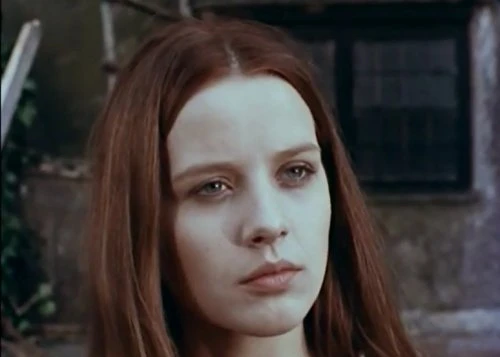
The international element to the cast is balanced by strong guest performances by those Scottish worthies James Cosmo, and Andrew Keir as a crippled survivor of Culloden and the historical Clan Chief Cluny MacPherson respectively. Although not, in fact, a Scot, Jack Watson always passed as one and is well cast as the "Prefect" of Bass Rock. Patrick Magee switches quickly and skilfully between comic relief, menace, and pathos as Davie's miserly uncle.

Patrick Allen is historically fair as the Lord Advocate, William Grant of Prestongrange (the estate he then owned which became his title when he was later made a Lord of Session): although Grant was merciless in his prosecution of the Appin Murder, which really is a famous case in Scottish legal history, he was in general a just man and the efforts he makes to save Davie from himself are consistent with what we know of his character. Wolfe Morris' portrayal of Simon Fraser, the Master of Lovat, is less fair, but he has the merit of looking uncannily similar to the portraits of several Lovats of the period. The real Simon Fraser was no villain, just a man who found himself in an impossible position not of his choosing. Bill Simpson is suitably noble as James of the Glens, Frank Windsor suitably arrogant as the oppressive "Red Fox" Campbell, and John Carson suitably unsavoury as James More "Drummond" (actually MacGregor). All these are based on real historical people, as is Alan, even if Stevenson took some liberties with them.
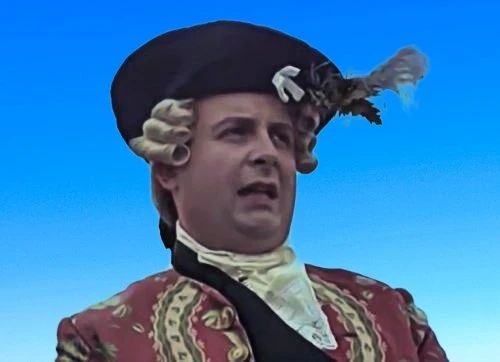
Christopher Biggins is authentic as the historical "Bonnie Prince Charlie," but it should be noted that he also had some more attractive qualities that are not shown here because they do not serve the point the story is trying to make. His opponent, the Duke of Cumberland, is played by the New Zealand stalwart Bruce Purchase, a familiar face in such productions around this time. As do often, Ferdy Mayne makes a strong impression in a small part, this time as a merchant. Bernhard Wicki, Godfrey James, and Arthur Brauss convince as the hypocritical Master, the bullying First Mate, and the humane Second Mate of the brig on which Davie is kidnapped.
The production is of a superior standard for its time, but still, with due respect, of its time. While the location work is excellent, especially the Scottish landscapes - no surprise - it cannot fail to prompt thoughts of what more modern photography would have made of the same images. In the same way one sees how fight choreography has improved since the 1970s: if some of the set pieces are very impressive, especially the duel provoked by Lieutenant Duncansby (Terrence Scammell), others now look a bit clunky. The costumes, props, and set dressing show the fine eye for detail that was actually quite typical of British television in those days, but so were the budgetary constraints that cannot be hidden at some points.
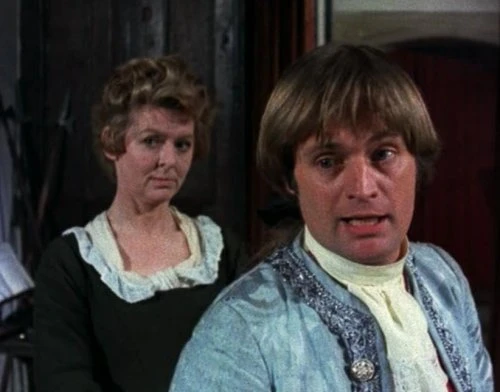
The pacing is occasionally a little off. Some scenes, especially in the early episodes, seem very abrupt, and so are the transitions between them. Things improve when David and Alan Breck finally link up, and the middle episodes are by far the best, but when the two friends separate the jumps between the different storylines are not always as smooth as they might be. While it has its strengths, Catriona as a novel is not an all-time classic like Kidnapped so the last episodes make a relatively weak ending. It also has to be said that, like many young couples in fiction, David and Catriona really have so little in common, apart from both being good looking, that one doubts that they would have made a happy married life together. In spite of the age difference, her fellow Highland aristocrat Alan would probably have been a better match for Catriona. However, her involvement in Alan's unnecessary murder of a harmless sentry - which, strangely, no one ever mentions again - strikes a wrong note.
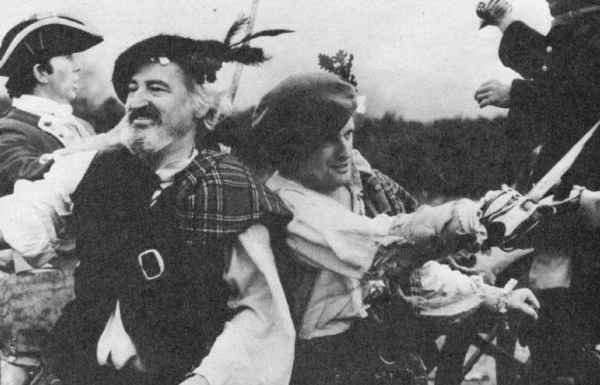
It was doubtless intended to remind us that Alan is a hard man in hard times. If so, it was not required. One already had a real sense of how the proud old Highland culture represented by Alan was giving way to the Enlightenment civilisation represented by David. The imperfections of the old culture are exposed without sentiment, not least in Alan, but it is also shown how it was not without a certain nobility, again not least in Alan and in Cluny MacPherson, a man one would have to respect even if one found him slightly ridiculous.
The nostalgic atmosphere is enhanced by a haunting score from Vladimir Cosma, who worked on a number of such projects, including Michael Strogoff, around the same time. It is this combination of the music, the landscapes, Landry, and, above all, McCallum that give this Kidnapped a truly romantic, if slightly melancholic tone, that seems true to the books and raises it above most other adaptations. One feels Stevenson would approve.
Seen this show? How do you rate it?
Seen this show? How do you rate it?
Published on August 16th, 2023. Written by John Winterson Richards for Television Heaven.



